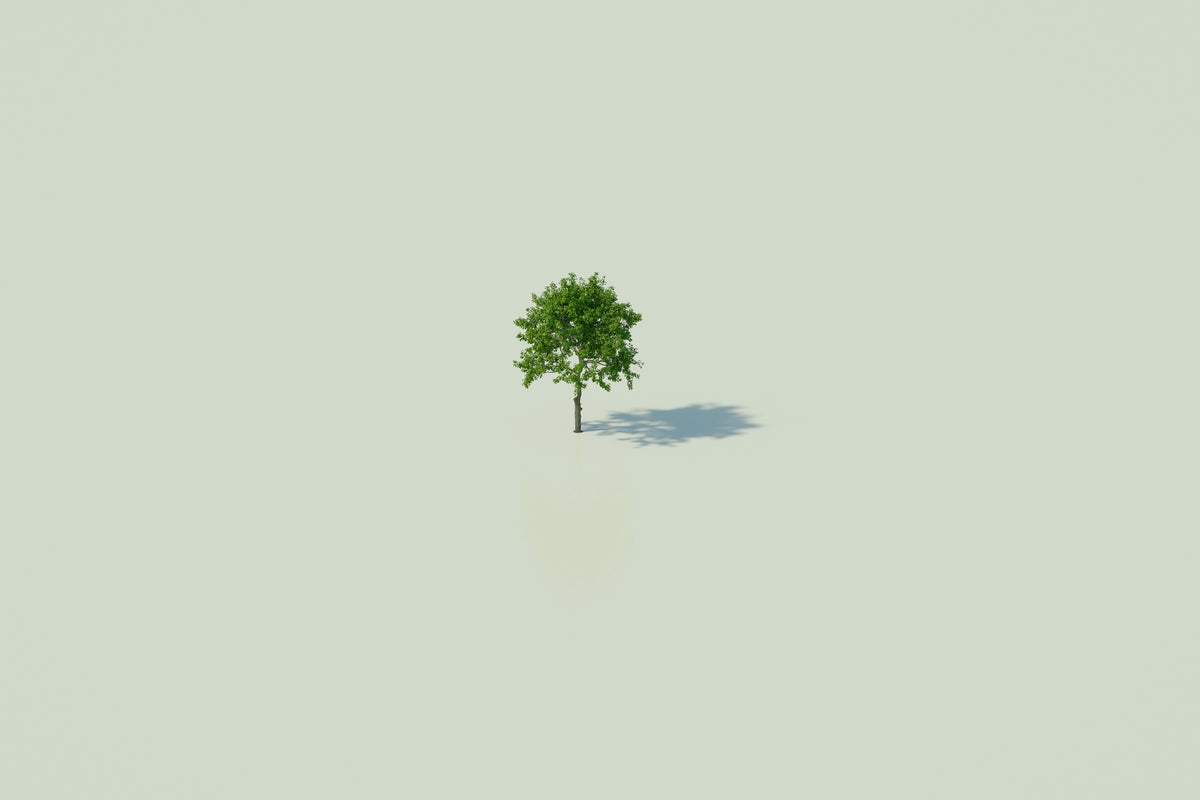Human Intelligence Created the Climate Crisis—But It’s Also the Solution
Science communicator Hank Green explains how our species’ unique intelligence got us into this climate mess—and how it will help us solve it
I spend a lot of time on the Internet; it’s become my second home in the 20 years I’ve communicated science online. And recently I came across an image that stuck with me: a cartoon of a sad, crying Earth covered in cut-down trees that says, “No intelligent species would destroy their own environment.”
I think this cartoon and the ideas it represents are both wrong and destructive. I don’t want my son, who is eight years old, to believe that humans are dumb and evil—both because that’s a pretty big bummer and because it’s obviously untrue. But I often find myself quite lonely in having that perspective, and I’m wondering if, perhaps, there are other folks out there who feel the same as I do.
Humans didn’t cause climate change by being stupid; they caused it by being extremely smart. We started burning coal to solve problems. We did it to grow more food, to heat and light our homes, to power refrigerators, to connect the world in a way that made the past few centuries of scientific advancement possible. We are here precisely because of our intelligence—and yes, the greed and selfishness of people in the fossil fuel industry who have certainly slowed our transition away from fossil fuels.
If you’re enjoying this article, consider supporting our award-winning journalism by subscribing. By purchasing a subscription you are helping to ensure the future of impactful stories about the discoveries and ideas shaping our world today.
But we are problem-solving machines, and we will solve this problem too.
Our intelligence is geared toward survival. We want to provide a good life for ourselves and our children. The results have been staggering. In the U.S. in 1895 one quarter of people died before age five. Today, it’s under 6 percent, and we will keep striving until it hits zero. Imagine the essays Ben Franklin or Mark Twain would write about this level of advancement. How would they keep tears from their eyes if they saw what we’ve achieved?
So much of that achievement has been based on energy, and the fossil fuels we’ve burned to generate it, whether coal, natural gas or oil. We’ve learned that this harms both the environment and people, and to our credit we aren’t always bad at addressing this. It was not long ago that London could be so that you had to clean it off the windows every day. When rivers catch on fire, the U.S. changes its policies. When rain becomes acidic, the world changes its policies. When harms are done locally, we tend to be pretty good at cleaning things up.
Here’s where I feel hope: we have already done this, and we know it is possible. In the U.K. CO2 emissions are now at their lowest levels since 1879 following a shift from coal to renewable energy! This is possible; we can see it being done. And it’s the responsibility of the biggest polluters, the countries like the U.S. who have benefitted most from burning fossil fuels, to make those changes happen.
And here is where I think we should absolutely feel some shame at our species. Humans are greedy. Humans are shortsighted. Humans will tell stories to make themselves believe that the things that they already want to do (like delaying climate action) are the right things to do. This is our nature, and I do think we could have done a better job at overcoming it. I am frustrated by the amount of time we’ve spent arguing instead of acting. I am frustrated by the extent to which we will not accept any inconvenience or sacrifice in exchange for making the world more livable for people in other places in the world, and even for our own children.
It’s worth acknowledging that this amount of foresight is unique to humans. It requires a great deal of intelligence, and, frankly, it’s remarkable to me that we’re able to do it at all. We are not like trees, which caused a mass extinction of their own when they evolved on land; we know that our actions today are threatening up to a million species worldwide. This is both an indictment of our failure to act sooner, and a reason to believe we can succeed if we dedicate ourselves to this fight.
Humans are not evil. We solve problems, and when we do, we create new problems. And I think that, ultimately, this is a pretty normal story for intelligent species. One day, if we ever make contact with another species like our own, I bet they’ll have a lot of stories about how they did the same thing—and how they found their way through.
This is an opinion and analysis article, and the views expressed by the author or authors are not necessarily those of Scientific American.
Hank Green is a science communicator and author who has produced and hosted thousands of videos and podcasts since he started this work in 2007. His science-fiction novels An Absolutely Remarkable Thing and A Beautifully Foolish Endeavor were both New York Times best sellers. He co-founded Complexly, which produces the educational YouTube channels SciShow and Crash Course and more than a dozen others.
Source: www.scientificamerican.com
